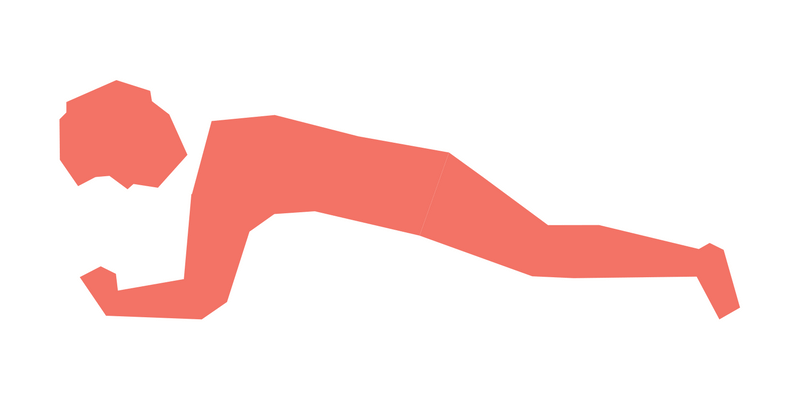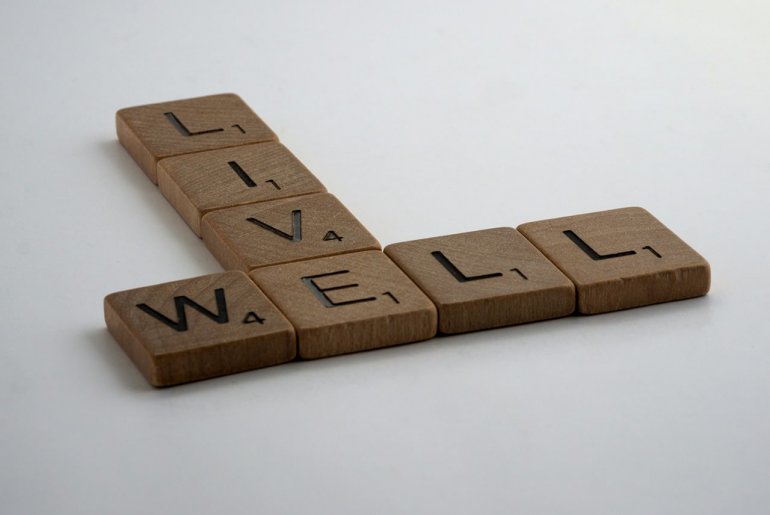
Look closely at the zebra striped pill capsule in the palm of my hand. Look closely because it has strong magic powers. This odd looking thing has the power to not only save your life, but extend your quality of life. It will inoculate you against the physical and emotional pain of common degenerative diseases, and Alzheimer’s. If you take it right now, you will feel the drug’s powerful effects immediately.
Would you like one?
How much is it, you ask.
Priceless, I respond. But there’s a catch.
Oh?
Exercise is the zebra striped pill.
Oh.

According to Crowley and Lodge, the authors of the best-selling book series Younger Next Year, exercise is magic. If you want to reverse aging, do it 45 minutes a day, six days a week with strength training twice a week and aerobic workouts for four and you are on the sacred path for a longer, much healthier life.
The Impact of Exercise on The Aging Process
Alongside eating well and getting the right amount of sleep, regular exercise is invaluable. Not only can it help stave off chronic diseases like diabetes, some cancers and heart disease, it can also have positive effects on the brain.
Exercising regularly inhibits weight gain while encouraging weight loss and the benefits don’t end there.
Today, we’ll explore the impact of exercise in the following areas:
- Memory
- Sexual Health
- Symptoms of Menopause
After we’ve outlined the role proper exercise plays in your brain health, libido and menopause symptoms, we’ll consider whether exercise can really keep you feeling and looking younger.
How Exercise Impacts Your Memory
As you age, exercise can help keep your mind sharp – not just your body.
Moderate aerobic exercise has a number of direct positive effects on the brain.
When you raise your heart rate, it pumps more oxygen to the brain. Hormones released stimulate the growth of new brain cells while also helping to repair damaged cells. This boost in overall brain function and health can give your memory a welcome leg-up.

Exercising in moderation can also reduce inflammation and lower your insulin resistance. Again, this coaxes your blood vessels to grow while enhancing overall brain health.
Beyond this, regular aerobic workouts can physically increase the size of the hippocampus. This part of the brain is responsible for verbal memory and learning.
Indirectly, exercise can have a positive impact on your mood, stress levels and sleep. All of these areas can affect memory.
What sort of exercise works best, though?
In general, anything that gives your heart a decent workout is also good for the brain.
Activities like ballroom dancing that combine physical and mental demands are not just fun and social, but more beneficial, too. They work better for cognitive functioning than either activity carried out in isolation.
Mixing things up is a great way to stay motivated and maximize the benefits not just for your body but also your memory. Do some resistance training along with some cardio and focus on activities you enjoy. If you don’t like jogging, walk instead.
If you like to work out, opt for some circuit training. The coordination and rhythm required along with some basic strategizing makes this an effective way to give your brain a workout along with your body.
Try exercising in the morning if at all possible. This gives your brain activity a spike, helps soothe any stress in your life and makes it easier to retain information throughout the day.
Even half an hour of moderate exercise a day could give your memory a prod in the right direction.

How Exercise Can Impact Your Sexual Health
A significant body of research has showed that physically active women report greater sexual arousal and desire as well as satisfaction when compared with women leading more sedentary lifestyles.
Testosterone doesn’t just boost sex drive in men but in women, too. By exercising, particularly if you enjoy working out with strength training, you can see a knock-on effect in your love life.
Don’t overdo it, though. By overtraining, you can end up lowering your testosterone levels instead with a negative outcome for your libido.
If you don’t enjoy hitting the gym, a vigorous bike ride can help with sexual arousal.
The end result of working out is often a markedly improved body image. The confidence this gives you can spill into the bedroom and lead to more fun and games between the sheets.
Exercising regularly can help keep your cortisol levels in check. When levels of this hormone get too high, sexual desire can take a battering. By decreasing your stress and balancing these cortisol levels through moderate training, you could notice an upswing in your libido.
Since working out hones your flexibility and strength while also building up endurance, this can spill over positively into the bedroom.
Last but certainly not least, studies have suggested that the adrenaline and endorphins released when you work out can increase your chances of orgasm. With more than 20% of women never climaxing, and up to 70% rarely experiencing orgasm, any helping hand can only be welcomed.
How Exercise Can Impact Your Symptoms of Menopause
At this stage of your life, you need to focus on different kinds of exercise.
What type of exercise works best when you’re menopausal?

- Aerobic exercise can bring about all the range of benefits above as well as lessening the chance of heart disease and helping with fat loss
- Resistance exercise, on the other hand, is a great way to strengthen both muscle and bone. It’s advisable to try for some muscle strengthening exercises a couple of times each week if possible and to minimize the time you spend sat down. Strength training can help to mitigate your risk of osteoperosis
- Any activities that work on your balance and coordination can guard you against taking a tumble
- Focusing on flexibility exercises helps with overall mobility while yoga can enhance your mental wellbeing
- Yoga, or any activity with a focus on controlled breathing, is a smart move if you are suffering from those inevitable hot flushes
Try to aim for 2 to 5 hours of moderate exercise each week. If you prefer a more intense approach to working out, 1 to 3 hours a week should suffice. You can, of course, use a combination of both gentle and vigorous exercise.
If you have trouble sticking to an exercise regime, aim to work out in a calming environment, ideally outdoors.
Is Exercise Really The Fountain of Youth?
Exercise can certainly help you to look better which, in turn, can give you a spring in your step and make you feel younger.
High-intensity exercise, in particular, can reverse some of the signs of cellular aging. This type of training combines short bursts of very vigorous exercise with spells of more moderate activity or rest. Interval training of this order can certainly help turn back the hands of time at least a little. It’s no miracle cure for aging but it definitely helps.
With less chance of midlife weight gain alongside improved general fitness levels, an appropriate degree of exercise in your life can make you feel younger and better placed to cope with the demands of aging.
So…
As long as you don’t suddenly start a totally reckless exercise routine without consulting your doctor, exercise on a reasonable scale could meaningfully be called the fountain of youth in many important ways.
Citations and Sources
https://www.ncbi.nlm.nih.gov/pubmed/15159540
https://www.ncbi.nlm.nih.gov/pmc/articles/PMC3041121/
https://www.health.harvard.edu/special-health-reports/improving-memory
https://www.frontiersin.org/articles/10.3389/fnagi.2016.00057/full
https://www.sciencedirect.com/science/article/pii/000579679500006J
https://www.sciencedirect.com/science/article/abs/pii/S1740144514000047
https://www.fitness.com/articles/1019/the_top_3_ways_exercise_boosts_your_sex_drive.php



